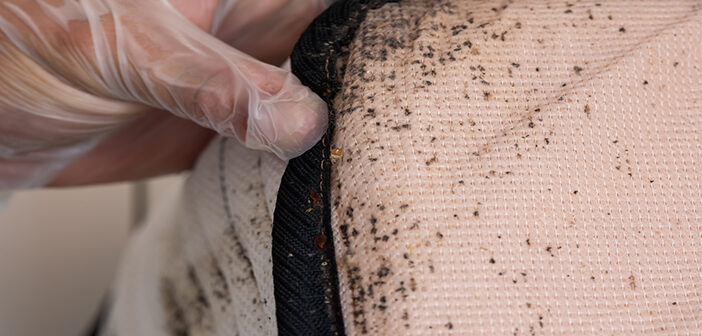The British Pest Control Association said vigilance is key in tackling internationally-spreading bed bug infestations, says British Pest Control Association (BPCA).
Natalie Bungay, BPCA technical manager, said regular checks at home can help identify early signs of an infestation, while visual checks when travelling can help avoid accidentally bringing bed bugs home with you.
Ms Bungay said: “Bed bugs are travelling pests and love to migrate. They latch onto items such as luggage, clothing and second-hand furniture, and will be transported into your home that way. It’s how they can also end up on public transport or in public buildings such as cinemas, and unfortunately, how people can bring them home from holiday.”
While bed bugs are not particularly dangerous, they can be very distressing and difficult to deal with.
She continued: “Bed bugs need blood to reproduce and really do come out at night when you’re asleep. Some people react to the bites which can be very itchy, and there may be painful swelling. A severe allergic reaction (anaphylaxis) is also possible but rare. Bed bugs can harbour various pathogens, but transmission to humans has not been proven and is believed to be unlikely.”
Ms Bungay said that bed bugs can be hard to avoid, but there are a few things you can do to try and reduce the likelihood of taking them home with you.
“Make sure if you’re staying in a hotel, motel or bed and breakfast, that you double check the mattress and other soft furnishings for signs of bed bugs, especially before putting your luggage on the bed or chairs,” she said.
“And do the same with any second-hand furniture you’re buying; check for signs before taking it into your home. While bed bugs don’t discriminate between clean surroundings and dirty ones, they will be easier to spot and eradicate if you practice good housekeeping.”




